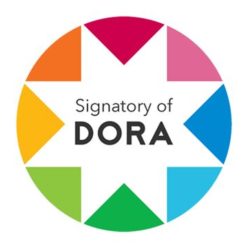Task & Finish Group 2: SPA-OPS OA Model for Independent Publishers
By Lucy Walton, Scholarly Publishing Consultant, Western Sydney UniversityIn 2021, cOAlition S and ALPSP commissioned Information Power to compile an overview of business models that society publishers could use to accelerate the transition to Open Access publishing. This resulted in the publication of an independent report by Lorraine Estelle, Dave Jago and Alicia Wise on How to enable smaller independent publishers to participate in OA agreements, a toolkit for transformative Open Access (OA) agreements that contain a model agreement (based on shared principles co-developed by libraries and publishers) and data-sharing template.
The final recommendations were for ALPSP, ICOLC, and OA2020 to jointly convene the following groups:
i. Task & Finish Group 1 – a project to review, revise, and agree on shared principles for transformative OA agreements between consortia/libraries and smaller independent publishers.
ii. Task & Finish Group 2 – a project to review, revise, and agree on:
- A model licence based on the principles agreed by Group 1 and starting from the SPA OPS Model licence (which is based on the Jisc Model licence but also informed by smaller independent publishers).
- A mechanism for keeping the model licence updated.
iii. Task & Finish Group 3 – a project to review, revise, and agree on a data template that publishers should present to start an OA agreement negotiation. The SPA OPS template should be the starting point.
The first SPA-OPS Task & Finish Working Group included representation from international libraries, consortia and smaller independent publishers. They regularly convened and worked under the auspices of the Association of Learned and Professional Society Publishers (ALPSP) and cOAlition S to define the shared principles for transformative OA agreements between consortia/libraries and smaller independent publishers who face challenges in trying to negotiate and implement transformative OA agreements.
In November 2021, the second SPA-OPS Task & Finish Working Group (Chaired by Celeste Feather, with Lorraine Estelle facilitating the meetings, Alicia Wise providing oversight, and Thom Barnes-Wise for support) was tasked with aligning the principles agreed to in 2020 by the first SPA-OPS Task & Finish Working Group. The Group took the SPA OPS Model Licence as a starting point and met every couple of weeks to review and revise the document to align with the principles, thereby making it easier to implement by key stakeholders. Because of time differences, not all group members could attend every meeting; however, they contributed to email discussions and reviewed the licences on Google Docs.
The document review took into consideration:
- Identifying clauses and definitions that might be considered Essential, Optional and Unnecessary.
- The workflow group’s outputs include minimum workflow as an element in the template licence.
- A review of the negotiation workflow from the workflow Task & Finish Group with links to the model licences and other documents.
The Group, however, soon realised that ‘one size does not fit all’ in terms of licence agreements – and so produced the following six example licences:
- Example OA Licenses Agreement (for Read & Publish agreements). This is based on the SPA-OPS Model Licence, which was based on the Jisc Model Licence.
- Example OA Licenses Addendum (for Read & Publish agreements that can be included in a model licence).
- Example Subscribe to Open License Agreement (for S2O agreements, with optional reporting clauses if required). This is based on the SPA-OPS Model Licence, which was based on the Jisc Model Licence.
- Example Subscribe to Open Addendum (for S2O agreements that can be included in a model licence).
- Example Crowdfunder Participation Agreement (for community-led Open Access investment programs).
- Example Elements of a procurement agreement This is a light touch, SERU style: an agreement that publishers, consortia, and libraries can use if a negotiated licence is not required.
Towards the end of January 2022, the six example licences, along with a draft infographic of the negotiation workflow with links to the six example licences, and a slide presentation, were delivered to the Steering Group for review and consideration. The Steering Group reviewed the outputs and congratulated the Task & Finish Working Group for creating a suite of example licences that will support small independent publishers and library consortia in enabling OA agreements across a range of models.
On Monday, 28 February, a project workshop for all stakeholders discussed the project outputs, including the example licence agreements, how the outputs could be embedded, and how automation might help with the workflows, and agreed on a plan and timetable for the implementation of these. The lessons from the OA Switchboard initiative were discussed. It was noted that there is tension between providing a great author experience and an ‘ideal process’ (i.e., capturing data as early as possible in the workflow) and the need for PIDs in article-level metadata. It was agreed that greater automation would enable library consortia and small independent publishers to make OA agreements scale.
It’s expected that the final outputs of the second Task & Finish Working Group will be available from the ALPSP website in April 2022.
References
Estelle, Lorraine; Jago, Dave; Wise, Alicia (2021): How to enable smaller independent publishers to participate in OA agreements. Wellcome Trust. Online resource. https://doi.org/10.6084/m9.figshare.14731308.v1
Acknowledgements
Special acknowledgement is given to Lorraine Estelle, Director Information Power Ltd, for her work, expertise, and insights on this project.
ORCID iD: https://orcid.org/0000-0003-3524-4542

